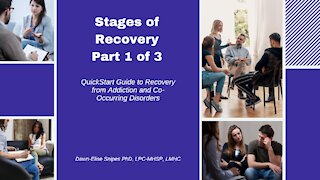Cognitive Decline and Stress: Prevention Strategies for Mental Health
In this episode of PACER Integrative Behavioral Health we explore the connection between physical and emotional stress and cognitive decline and even dementia.
Physical
During periods of high stress, free radical generation contributes to oxidative stress in the brain along with excitotoxicity which leads to neuronal cell death.
Hypertension is the leading cause of strokes which can lead to vascular dementia.
Obesity increases systemic inflammation and the risk of dementia in general by 42 percent, Alzheimer's by 80 percent and vascular dementia by 73 percent.
BMI is linked to decreased brain volume, independent of age and morbidity.
Decreased blood flow to the prefrontal cortex in healthy, obese adults
Diabetes: A history of recurrent severe hypoglycemic episodes was associated with a greater risk of dementia.
Poor nutrition: Reduction of sodium and stimulants and the addition of foods containing Omega-3, antioxidants, B-Vitamins serve to bolster normal health mechanisms that are a natural deterrent of chronic health conditions.
Physical
Hearing loss in late life might contribute to depression and a sense of isolation and loneliness, both factors for cognitive decline.
Smoking and vaping increase oxidative stress and problems in the heart and blood vessels which increase the risk of vascular dementia and Alzheimer’s.
Physical inactivity: 30 minutes of activity per day has been shown to decrease dementia risk. Even more protection was found by the involvement in 4 or more types of activities (i.e. walking, biking, swimming, gardening, yoga, Tai Chi).
Alcoholism: Alcohol is toxic to the brain and results in reduced thiamine levels which can cause Korsakoff's Syndrome (Alcohol Related Dementia).
AIDS: Aids Dementia Complex Develops in 7-10% of people who are not taking HIV medications.
Affective
Late-Life Depression: High levels of cortisol in people with depression have been associated with the development of dementia; however, depression could also be a very early warning sign of dementia as well.
PTSD
Chronic stress
Cognitive
Early life education: Higher education decreases the risk of dementia by 30% possibly due to the fact that people with more education are often more financially secure, and have access to proper health care and nutrition.
Continued learning and cognitive stimulation (awareness, creativity and logic)
Environmental
Stressful or understimulating environments
Dr Dawn Elise Snipes provides training through AllCEUs.com that are helpful for LPC CEUs LMHC CEUs LCPC CEUs LSW CEUs LCSW CEUs LMFTCEUs CRC CEUs LADC CEUs CADC CEUs MAC CEUs MCAP CEUs NCC CEUS LCDC CEUs CPRS CEUs CTRS CEUs and HPCSA ACA #NBCC counsellors needing counselling continuing education counseling continuing education ceus for social workers social work ceus addiction counselor training counseling ceus continuing education training
NCMHCE addiction treatment, addiction recover,y mental health, anxiety relief, depression, motivation, mental health awareness, addiction awareness and integrated behavioral health approaches to treatment CEbroker CE broker @cebroker lpc ceus lmhc ceus lcsw ceus mental health mental illness
#stressmanagement #dementia #brainhealth
-
 13:03
13:03
Integrative Approaches to Addiction and Mental Health Recovery
3 years agoStages of Recovery Part 1
100 -
 2:24
2:24
WMAR
3 years agoFinancial stress impacting mental health
290 -
 0:35
0:35
KTNV
3 years agoMental stress among health care workers
170 -
 2:46
2:46
Newsy
3 years agoPandemic Stress Is Worsening Gen Z's Mental Health
309 -
 4:05
4:05
WXYZ
3 years agoKids and Mental Health
80 -
 0:25
0:25
WFTX
3 years agoMental Health amid pandemic
224 -
 1:03
1:03
WXYZ
3 years agoMental Health and Faith
75 -
 2:40
2:40
KSHB
3 years agoCOVID-19 Mental Health
474 -
 2:10
2:10
WKBW
3 years agoWELLNESS WEDNESDAY - MENTAL HEALTH MOMENT
136 -
 2:58
2:58
WSYM
3 years agoLifeWays Community Mental Health - 1/5/21
48